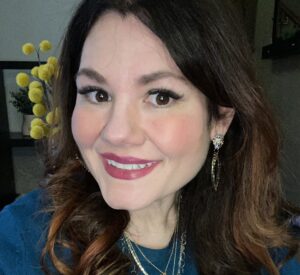
(Photo by TIMOTHY A. CLARY/AFP via Getty Images)
The criminal trial of former president Donald Trump for making hush money payments to Stormy Daniels in order to influence the 2016 election is continuing apace. Yesterday featured the testimony of former Trump attorney, Michael Cohen. The Cohen testimony is crucial for the prosecution, as he’s alleged to be the conduit for the payment. Conventional wisdom is that the District Attorney’s office had a strong day, with MSNBC’s Katie Phang saying, “It was elegant because the prosecution had done such an effective job of getting evidence entered in to the record, because remember, if it’s not in the record, it can’t be used… To have the nuance added from Michael Cohen’s testimony is what good trial lawyers do. You saw a well-executed plan from the Manhattan DA’s office to allow the introduction of certain cell phone records, text messages, emails, bank statements, it all was the corroborating evidence that allowed Michael Cohen to stand on his own, on his own testimony, and not have to worry that there was nothing underneath him in terms of a foundation to be able to talk about what happened.”
But not every commentator got it right. The New York Times’ Maggie Haberman — notably not an attorney — criticized some of the testimony as hearsay. Except it wasn’t.

3 Ways Lawyers Are Finding New Efficiencies With AI
Those who’ve adopted legal-specific systems are seeing big benefits.
And legal Twitter/X was on top of it.
Trump is a party opponent and so his statements are not hearsay under the rules. Also a statement in furtherance of a conspiracy. Also Cohen's credibility is as issue no matter what he says. pic.twitter.com/aFIaKpzwGp
— Andrew Fleischman (@ASFleischman) May 13, 2024

Chrometa: Turning Time Into Billable Value For Modern Lawyers
Adoption of Chrometa represents more than a technological upgrade; it reflects a professional philosophy that values accuracy, transparency, and efficiency.
Just going off of Maggie's wording, but I'd say it's non-hearsay in the first place and doesn't require an exception because I presume it's not being used for the truth of the matter asserts (that is, how long Trump will be on the market, whatever that means).
— Damin Toell (@damintoell) May 13, 2024
And if they challenge it on cross, the jury will get to hear about it some more!
— George Conway (@gtconway3d) May 14, 2024
And we don’t even have to delve into the infamous exceptions to hearsay to reach a conclusion about the admissibility of the testimony is question.
119/188
I hope in the first part of this thread, I've demonstrated why the distinction between an exception-to-hearsay and not-hearsay is dispositive in the admissibility of Cohen's testimony.
In the next part, let's discuss New York's crime-fraud exception to privilege.
— @ geoffbowser (@Geoffbowser2) May 13, 2024
I am unreasonably pleased that Andrew described party-opponent statements as “not hearsay,” rather than “an exception.” https://t.co/vIvyF48MX3
— Joe Dudek (@JoeDudekJD) May 13, 2024
Remember when listening to legal commentary, it’s best to pay attention to the actual lawyers. It’s good to know those expensive JDs are good for something.
UPDATE: Well, this *is* an interesting development.
I wonder if this is why she suddenly had such strong thoughts on hearsay yesterday. https://t.co/cDc2jGdEHg
— Joe Patrice (@JosephPatrice) May 14, 2024
 Kathryn Rubino is a Senior Editor at Above the Law, host of The Jabot podcast, and co-host of Thinking Like A Lawyer. AtL tipsters are the best, so please connect with her. Feel free to email her with any tips, questions, or comments and follow her on Twitter @Kathryn1 or Mastodon @[email protected].
Kathryn Rubino is a Senior Editor at Above the Law, host of The Jabot podcast, and co-host of Thinking Like A Lawyer. AtL tipsters are the best, so please connect with her. Feel free to email her with any tips, questions, or comments and follow her on Twitter @Kathryn1 or Mastodon @[email protected].